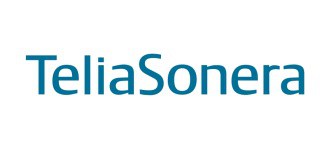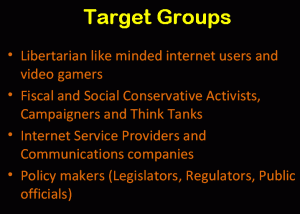Hollywood studios have a proposition to make.
How would you like to gain access to the latest Hollywood releases on your cable, satellite, or broadband connection even while those movies are still playing in area theaters?
The Motion Picture Association of America says it’s willing to let you watch first-run Hollywood blockbusters from home, but in return, they want the right to control what you can do with your television set.
Time’s up for you to make up your mind. The Federal Communications Commission has decided you were going to say “yes” to this proposition anyway, so they went ahead and approved it on your behalf.
Specifically, the MPAA appealed to the Federal Communications Commission to get approval for its proposed Selectable Output Control technology. You probably never heard of that, but the concept actually has been around for a few years now. When movie studios float trial balloons about enabling the technology, public interest and consumer groups start hollering and it typically gets shelved for awhile. Not this time.
While the public policy debate continued, chances are the manufacturer of your television set or monitor manufactured after 2004 has probably already included some support for SOC — just waiting to hand over control of your television to Hollywood studios, cable, satellite, or IPTV companies. On May 7th, while we were debating Net Neutrality, the FCC released its order approving the Hollywood Remote Control Confiscation Act (my name sounds far better than the FCC’s — Petition for Waiver of the Commission’s Prohibition on the Use of Selectable Output Control.)
Here’s how it works:
Let’s say your cable company wants to offer you Iron Man II through pay-per-view starting today. It’s a movie currently playing in many theaters nationwide. The MPAA believes there is compelling demand among the elderly, the home-bound, and the too-lazy-to-haul-themselves-to-the-Movieplex to make it available in the comfort of your own home on early pay per view. However, Hollywood and your local cable company don’t want you making copies of the movie to hand out to all your friends. With SOC technology, that becomes less of a problem because the cable company can selectively disable the outputs on the back of your television that don’t use copy control technology. That means old fashioned analog outputs can be disabled for up to 90 days during SOC-enabled programming, making sure you cannot record any of the content without the approval of the studio or your cable company.
Certain digital outputs will still function, as long as they support robust anti-recording/copying technology. No more time-shifting SOC-protected content on digital video recorders to watch later, no more analog VCR taping of shows the industry doesn’t believe you have a right to record anyway.
For decades, Americans have fought for fair use rights that permit home recording and copying for personal use. The entertainment industry has never fully accepted that, and have eroded away the ability for consumers to make legitimate personal use of content they have already purchased with digital rights management schemes, copy protection, region coding, and other limiting technologies.
SOC technology effectively forfeits all of your rights. The only consumer protection the FCC provides is a requirement that your cable, satellite, or broadband provider warn you when they are employing SOC anti-recording technology. At least you’ll know when your home recording rights are being trampled.
If your television set doesn’t have support for SOC built-in, the FCC just made your television set obsolete. Write and thank them. While initial deployment of SOC is only expected to be used for “early pay per view,” don’t believe for a moment such powerful controlling technology available to entertainment companies won’t be used in the future for other types of content they don’t want you recording. Premium movie channels like HBO or Cinemax would be obvious examples. TV networks that would like to sell you their network shows on DVD or through online services might find it worth their while to disable your ability to record your favorite shows. If you don’t have an SOC-capable set, it’s likely you won’t be able to access protected programming at all.
With the ongoing convergence of broadband, television, and other forms of home entertainment distribution, SOC is a foot in the door to permit third parties to make decisions about how you can view or use content you’ve already paid to receive. That’s a bad precedent. The FCC approval of this gift to the entertainment industry is a travesty that needs to be reversed.
[flv width=”640″ height=”500″]http://www.phillipdampier.com/video/KCTV Kansas City FCC Ruling Could Bring New Movies Into Homes 5-16-10.flv[/flv]
KCTV-TV in Kansas City ignored the consumer’s loss of control over their own television set to focus instead on the implications for theater owners, who may become natural allies with consumers in opposition of SOC. (1 minute)
[flv]http://www.phillipdampier.com/video/Public Knowledge – Selectable Output Control.flv[/flv]
Public Knowledge developed this web-ready video that takes a less formal look at SOC and its impact on your consumer rights. (3 minutes)


 Subscribe
Subscribe





 Melissa Buscher, director of media relations at Time Warner Cable told Cowell. “We do believe people in the community should have a say-so in how large amounts of public monies are spent.”
Melissa Buscher, director of media relations at Time Warner Cable told Cowell. “We do believe people in the community should have a say-so in how large amounts of public monies are spent.”






